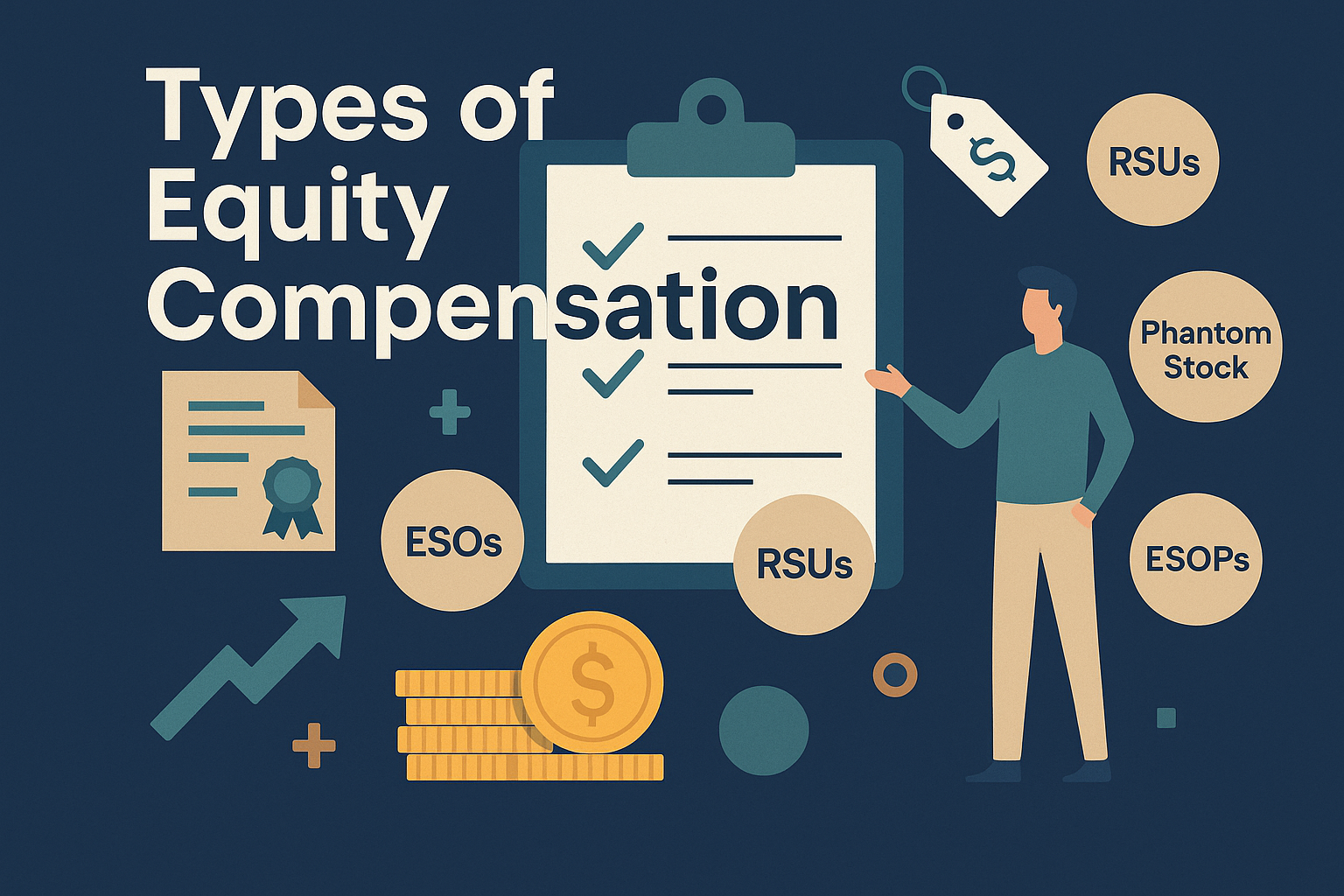
Equity compensation is one of the most powerful — and confusing — parts of an employee’s pay package. From stock options to RSUs to phantom stock, companies use equity to align employees with the company’s success. Done well, it can be life-changing wealth. Done poorly (or misunderstood), it can be worth far less than it looks on paper.
If you’ve ever wondered:
…this guide is for you.
Unlike salary or bonuses, equity compensation gives you a stake in the company’s future. The upside is clear: if the company grows, your stake grows with it. The catch? Equity is often complex, illiquid, and full of “fine print” around taxes, vesting, and exercise rules.
That’s why understanding the type of equity you’re offered is just as important as knowing how much.
Best for employees who want predictable, guaranteed value.
Best for employees at high-growth startups with big upside potential.
Best for later-stage companies where stock appreciation is more predictable.
Best for public company employees who want a low-risk benefit.
Best for private companies not ready to issue real equity.
Best for senior leaders negotiating ownership upfront.
Best for employees at established companies that use ESOPs as a retirement benefit.
Every situation is different, but generally here’s how they stack up for most employees:
When your employer offers you stock options or RSUs, don’t just accept blindly. Frame the conversation around clarity and fairness:
Questions to Ask:
Negotiation Angles:
Equity compensation can be the most valuable part of your pay — or the most confusing. RSUs and ISOs tend to offer the best mix of value and upside, while other forms like phantom stock or ESOPs can still be beneficial depending on your company’s stage.
The golden rule: clarity first, negotiation second. Understand exactly what you’re being offered, then make sure it aligns with your financial goals.


